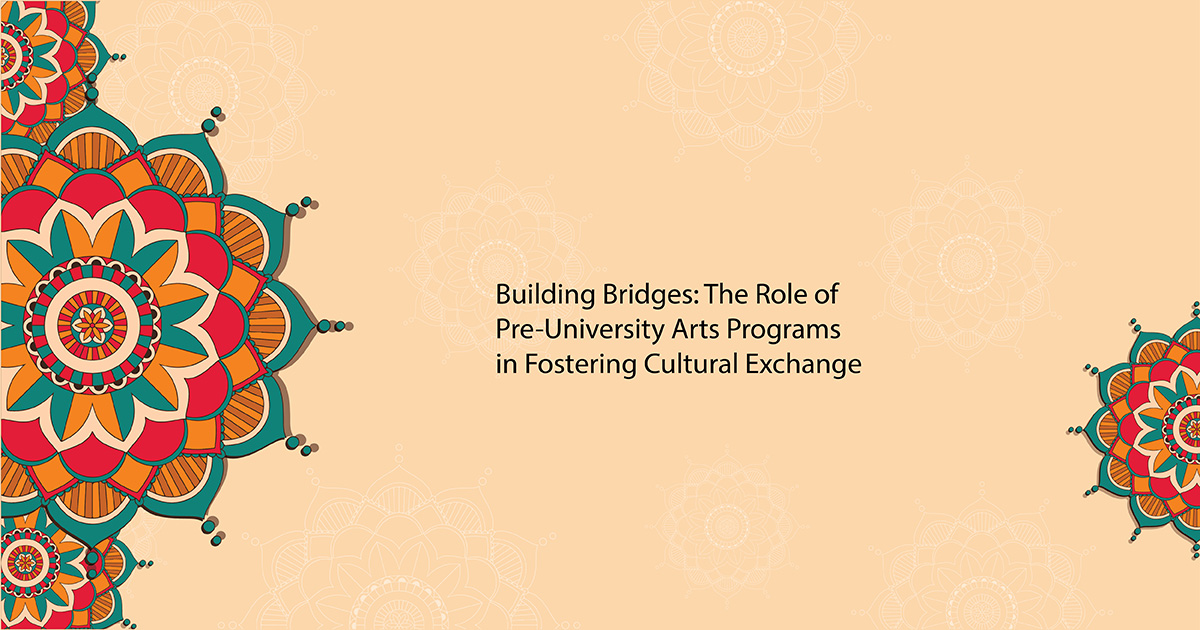
As the world gets more globalised, there is a need to understand and accept the cultural differences that we all possess with each other. As a student, you must learn the importance of different cultures, as it helps you put yourself in others’ shoes and see the world from their perspective.
When you accept the differences and embrace the diversity of your classmates and the people around you, you develop empathy and tolerance. It is important that employees respect each other’s cultures at their workplace. The best way to accept, nurture and make the most of cultural diversity is to enrol in arts programmes at the pre-university (PU) level. Let us understand in depth how pre-university arts programme subjects help foster cultural exchange:
History
History is one of the main subjects of the PU Arts programme, and it covers topics from our past such as human civilisations, nations, and cultures. When you study these historical events, you gain an understanding of the different societies' values, struggles, and achievements. When you study your history, you can understand how different cultures and ethnicities have influenced each other over the years, thereby promoting cultural exchange across borders.
Economics
Economics is an important component of the Arts programme that focuses on how economic systems, trade, and globalisation can impact different cultures. You get an opportunity to learn about international trade, cultural industries, and economic differences. Through this exposure, you can understand global markets, and multinational corporations and gain information about how economic forces drive cross-cultural interactions and influence cultural exchanges.
Political Science
The political science domain explores the dynamics of power, governance, and international relations. You will learn about diplomatic interactions, conflicts, and treaties that can help you understand how foreign policies have influenced international relations. This programme exposes you to the world of politics and its role in fostering cross-cultural collaborations and addressing global challenges.
Psychology
Psychology explores human behaviour, cognition, and emotions. When you study psychology in diverse cultural contexts, you understand how cultural norms shape individuals' perceptions, behaviours, and mental health. The programme equips you with relevant knowledge to understand and respect cultural differences and impart empathy and social sensitivity.
Sociology
When you study sociology, you learn about the structure, functioning, and changes that can happen within societies. By exploring topics such as migration and social division, you can learn how different cultures have interacted and influenced each other in forming diverse opinions and thought-process. Through this programme, you can enrich your critical thinking skills while nurturing cultural diversity and social integration.
Way Forward
In conclusion, valuing cultural diversity is very important in our globalised world. As a student, grasping the significance of cultural exchange not only empowers you to embrace diverse perspectives but also helps you grab career opportunities. In this aspect, pre-university (PU) arts programmes emerge as the best solution for nurturing cultural understanding. By studying these disciplines, such as history, they can unlock past narratives and understand how values have influenced mankind since time immemorial. On the other hand, economics exposes the impacts of globalisation on cultures, while political science navigates diplomatic ties and how politics can bridge cultures. Psychology explores the connection between cultural norms and human behaviour, whereas sociology dissects societal structures and fosters diversity and critical thinking. Therefore, PU arts programmes equip you with a comprehensive understanding of cultural exchange and lay the foundation for a more inclusive and empathetic society.

JAIN PU College, a part of the renowned JGI Group, is committed to empowering students with quality education.
Beyond academics, the college ensures its online content reflects the same standard of excellence. Every blog and article is meticulously vetted and proofread by subject matter experts to ensure accuracy, relevance, and clarity. From insightful educational topics to engaging discussions, JAIN PU College's content is crafted to inform, inspire, and add value to its readers, reflecting the institution's commitment to intellectual growth and innovation.
View all Blogs